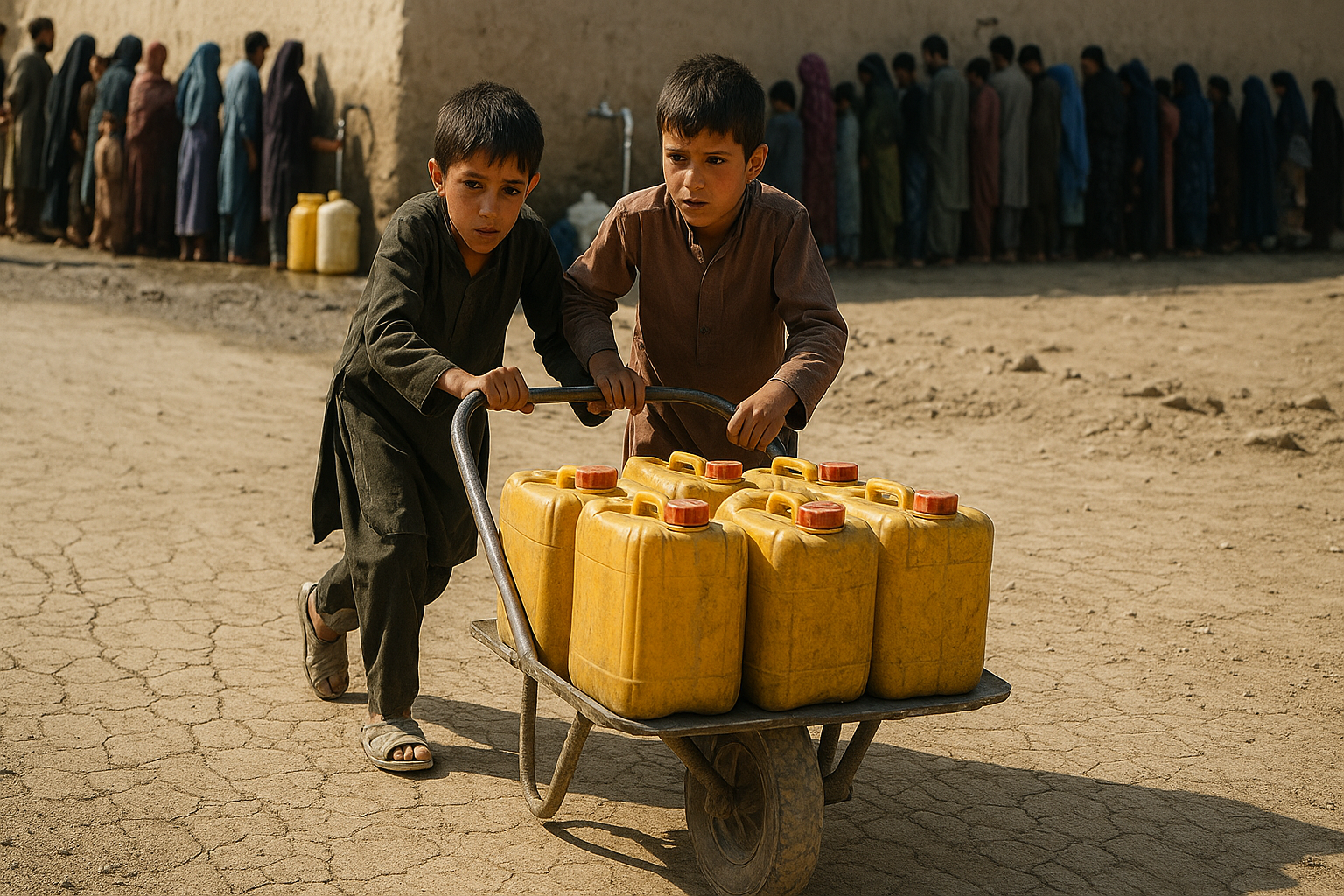
Eight-year-old twins Noorullah and Sanaullah should be in school. Instead, they spend their days pushing a wheelbarrow filled with empty jerrycans through Kabul’s dusty alleys, waiting hours at communal taps to collect water.
Their story reflects the plight of thousands of Afghan families struggling with a worsening water crisis. Once able to rely on their own well, the family of 13 now survives on costly tanker deliveries or by standing in line for hours.
By 2030, Kabul may run out of groundwater altogether, warns the Afghanistan Analysts Network, a Kabul-based research group. Climate change, droughts, and erratic rainfall have made the Afghan capital one of Asia’s most water-stressed cities.
Children Paying the Price
Noorullah, who suffers from epilepsy, once collapsed while waiting in the queue. “Sometimes we stand in line for three hours. When the heat is too much, we feel dizzy,” his brother said.
Their father Assadullah, a shopkeeper, has seen his income vanish as he spends most of his day helping his sons fetch water. On good days, he earns $2–$3, but often his shop remains closed.
His wife struggles too, boiling water twice to make it safe. “I measure every jug before washing dishes. But even then, we fall sick,” she said.
Wells Drying at Record Depths
Kabul’s population has exploded past six million in two decades, but infrastructure hasn’t kept up. War wrecked much of the city’s water system, leaving residents dependent on wells or tankers.
Even wells dug 120 metres deep — once a guaranteed source — have dried up. Snowmelt that once replenished Kabul’s rivers and groundwater has nearly disappeared, leaving riverbeds cracked and dry.
Experts Sound Alarm
Najibullah Sadid, a Germany-based water researcher, calls Kabul “among the most water-stressed areas in Asia.” UN envoy Roza Otunbayeva recently warned the UN Security Council that Kabul could be the first modern capital to completely run out of water “within years, not decades.”
A Simple Wish
For Assadullah, the father of the twins, the demand is not complicated: “If we had enough water, my children could go to school. Our whole life would change.”
